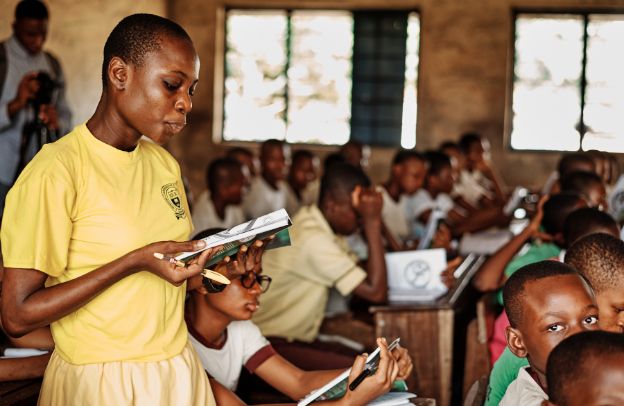The Importance Of Storytelling For The African Diaspora – The Diaspora Storytelling Series

Storytelling holds significant importance for the African Diaspora for various reasons. The African Diaspora refers to the global dispersion of people of African descent, primarily resulting from the transatlantic slave trade, colonialism, and other historical events. Telling these stories from the point of view of Africans is fundamentally important.
Want to learn more about storytelling? Start by downloading the first chapter of The Storytelling Series for Small Businesses.
Storytelling holds immense significance for the African Diaspora as it serves as a powerful tool for preserving history, culture, and identity. It plays a vital role in connecting people of African descent to their roots and helping them understand their heritage.
Listen to our LinkedIn Audio Live event on the topic
5 ways to effectively leverage Diaspora Storytelling
Diaspora storytelling is a powerful tool for preserving and sharing the culture, history, and experiences of a community that has been dispersed across the world due to various reasons, such as migration, conflict, or economic factors.
Leveraging Diaspora storytelling can help these communities maintain their cultural identity and create a sense of belonging among their members. Here are five effective ways to leverage Diaspora storytelling:
Oral History and Interviews:
Collect oral histories and conduct interviews with community elders and members who have direct connections to the homeland. These stories can provide valuable insights into the cultural practices, traditions, and historical events that define the community.
Record these interviews and transcribe them for documentation and sharing. You can use audio or video recordings to capture the emotions and nuances in these stories.
Digital Storytelling Platforms:
Create a digital platform, such as a website or social media account, to curate and share Diaspora stories. This platform can serve as a central hub for the community to connect and engage with their shared narratives.
Use multimedia elements like photos, videos, and interactive maps to make the stories more engaging and accessible to a wider audience.
Collaborative Storytelling Workshops:
Organize storytelling workshops and events within the Diaspora community to encourage individuals to share their own stories and experiences. These workshops can help participants refine their storytelling skills and provide a supportive environment for sharing personal narratives.
Encourage participants to create written, visual, or audio stories that reflect their unique perspectives.
Documentary Films and Podcasts:
Produce documentary films or podcasts that explore the history and experiences of the Diaspora community. Visual and audio mediums can be powerful in conveying the emotions and experiences of the community members.
These formats allow for in-depth exploration of specific topics, events, or individuals within the Diaspora, reaching a wider audience beyond the community itself.
Cultural Events and Exhibitions:
Host cultural events, exhibitions, and festivals that showcase the art, music, dance, cuisine, and traditions of the Diaspora community. These events can serve as platforms for sharing stories and connecting with a broader audience. Through art and cultural expression, stories can be integrated into the community’s ongoing narrative.
In all these methods, it’s essential to emphasize the importance of preserving cultural heritage, fostering a sense of belonging, and sharing the stories of resilience, migration, and adaptation that define the Diaspora community.
Leveraging Diaspora storytelling can help not only preserve the rich cultural tapestry of a community but also build bridges of understanding and empathy with the wider world.
How to tell African Diaspora stories
Telling African Diaspora stories effectively requires a thoughtful and culturally sensitive approach. It’s important to consider collaborating with individuals who have lived experiences within the Diaspora ensures authenticity and helps avoid misrepresentation. Additionally, in-depth research is crucial to understanding the historical, cultural, and social context of the stories being told.
This research should go beyond stereotypes and superficial knowledge, delving into the rich and diverse histories and experiences within the African Diaspora.
Moreover, storytellers should prioritize multiple perspectives and avoid presenting a monolithic view of the African Diaspora. It’s important to explore the nuances, complexities, and variations within the community.
Authenticity and respect for cultural traditions and languages are vital. Finally, storytelling mediums can vary, including literature, film, visual arts, and oral traditions, and the choice of medium should align with the intended audience and the story’s objectives.
In essence, the best way to tell African Diaspora stories is through a combination of collaboration, research, cultural sensitivity, and a commitment to portraying the diversity and richness of these narratives.
9 reasons why storytelling is important
- Preserving History: Storytelling has been a traditional way of passing down historical events and experiences from one generation to another. Through stories, the African Diaspora can learn about their ancestors’ struggles, triumphs, and contributions, thereby gaining a deeper appreciation of their heritage.
- Cultural Transmission: Storytelling is a means of transmitting cultural values, beliefs, traditions, and practices. It helps maintain a sense of belonging and identity within the African Diaspora, even in places far removed from their ancestral homelands.
- Empowerment: Sharing stories of resilience, resistance, and achievements within the African Diaspora can empower individuals by fostering a sense of pride and self-worth. These narratives highlight the strength and resilience of the community in the face of adversity.
- Community Bonding: Storytelling brings people together, fostering a sense of unity and solidarity within the African Diaspora. It creates a shared narrative that helps individuals connect, building a supportive and tight-knit community.
- Counteracting Stereotypes: By sharing authentic stories, the African Diaspora can challenge stereotypes and misconceptions that have often been perpetuated in mainstream media. It provides an opportunity to present a more nuanced and accurate portrayal of their culture and experiences.
- Inspiration and Role Models: Storytelling offers role models and inspirational figures for young members of the African Diaspora. Learning about individuals who have made significant contributions can motivate them to pursue their dreams and make positive changes.
- Healing and Resilience: Through storytelling, the African Diaspora can address historical trauma and promote healing. It allows for the acknowledgment of past injustices while emphasizing the community’s strength and ability to overcome challenges.
- Artistic Expression: Storytelling within the African Diaspora often encompasses various forms of artistic expression, such as music, dance, and oral narratives. These creative outlets provide opportunities for self-expression and cultural celebration.
- Education and Awareness: Storytelling is an engaging way to educate both members of the African Diaspora and the wider world about the community’s rich history and contributions to society. It helps raise awareness and promote a more inclusive understanding of global history.
Conclusion on The Importance Of Storytelling For The African Diaspora
Storytelling holds significant importance for the African Diaspora for various reasons. The African Diaspora refers to the global dispersion of people of African descent, primarily resulting from the transatlantic slave trade, colonialism, and other historical events. Storytelling within this context serves several critical functions:
As we navigate the complexities of our modern world, it is crucial to recognize the profound significance of storytelling within the African Diaspora. Through the power of narrative, it continues to inspire, educate, and advocate, ensuring that the stories of resilience, culture, and history are never forgotten. In doing so, it empowers individuals and communities, serving as a timeless testament to the enduring strength of the human spirit.
Want to learn more about storytelling? Start by downloading the first chapter of The Storytelling Series for Small Businesses.





